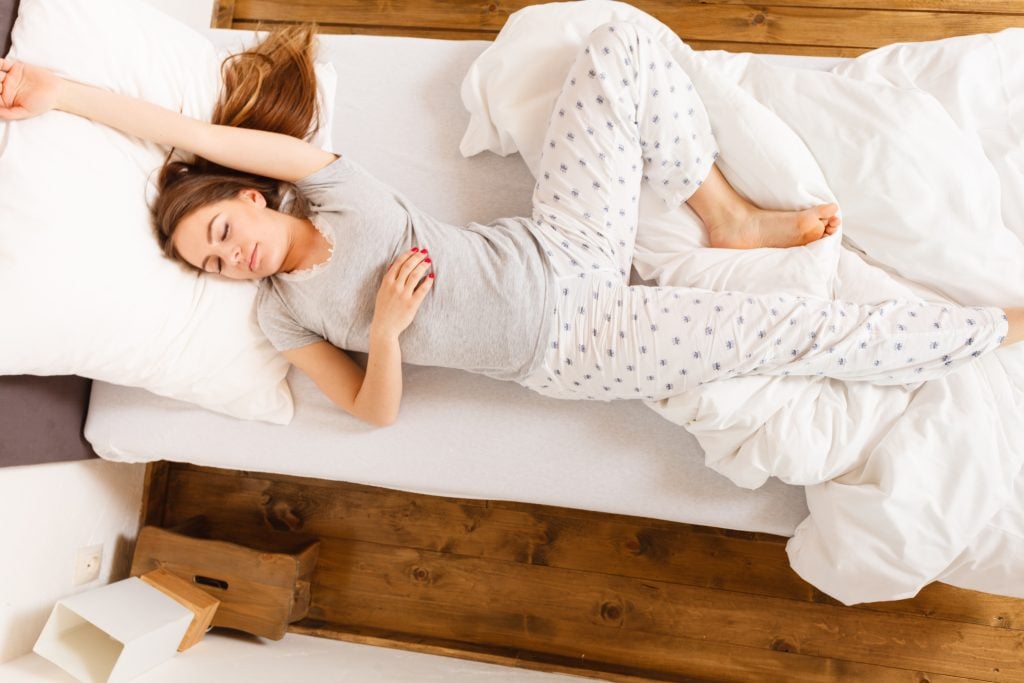
In a relationship, we often talk about compatibility. We talk about matching personality types, interests and opinions, and many apps are now available that assess two individuals’ compatibility to help you find the perfect match. This can be incredibly successful – but one thing that can stick out on the compatibility front is your sleeping habits.
Sleep is such an individual thing. The durations and timing of sleep can vary greatly between individuals and still be completely healthy for the person involved. The only problem is when two very different sleeping types meet and attempt to sleep in the same bed together.
People often think we should sleep 8 hours each night, but healthy sleeping times vary greatly from person to person. One person may require six hours of sleep per night and another nine; it all depends on the individual.
You’ve probably heard of night owls and morning larks. Night owls are most alert in the evening hours; they naturally stay up late and like to sleep around midnight or 1 am. Conversely, morning larks have their best hours in the morning and naturally feel the urge to sleep much earlier in the evening. Neither is better than the other; it just comes down to personal preference.
The other big factor affecting sleep is shift work. Over 10% of the UK adult population work shifts; this affects various professions, from nurses to police officers and bakers to engineers. This could mean getting up at 5 am for a 6 am start, for instance, or perhaps finishing work at 2 am and going to bed at 3 am.
Some people shift their sleeping position overnight during the transitions from one sleep stage to another; similarly, others toss and turn until they’re comfortable. This, too, is variable; some people sleep all night motionless like a log, while other people sleep more like a live salmon!

When our sleeping style does not match our bed partner’s, we can end up disrupting the other’s sleep. This can be either through couples insisting they go to bed at the same together, when one partner is not tired, or through the disturbance caused by getting in and out of bed. When this happens every night, you can get significant daytime tiredness with a knock-on effect on physical and mental health, as well as a relationship strain.
Sometimes, it’s not just sleeping habits that disrupt sleep but also medical conditions. Nocturia is the name given to needing to pass water overnight. Once or twice is often normal, but more frequent episodes can occur with prostate enlargement in men and with menopause in women. Regularly getting in and out of bed can lead to frequent awakenings and poor-quality sleep, especially if you are the sort of person who struggles to fall back asleep once woken up.
For many people, sleep disruption is impossible to endure, and so couples resort to sleeping in separate beds, either in the same room or a spare bedroom. This routine is often referred to as a sleep divorce. It is a solution of sorts, but for many couples sleeping in the same bed is important for maintaining relationship intimacy.
Our first advice would be to talk to your partner about how your sleep is being disrupted. Often partners aren’t aware of the impact of their sleeping habits, and with a little more care and consideration, the disruption can be minimised. Alternatively, If you believe your bedtime routines are the result of a medical issue, such as getting up to pass water multiple times overnight, you should speak to your GP.

Sometimes if the disruption is on certain days, either due to occasional shift work or being an on-call worker and having to be called into work overnight, then separate beds on these nights are a viable option. This should be suggested sensitively, as it can be interpreted as a deliberate step away from relationship intimacy.
Many couples find their sleep disrupted by their partner’s movement but want to stay sleeping in the same bed because of the important emotional intimacy associated with sharing a bed. A way to resolve this is to choose a mattress with minimal motion transfer, such as a pocket-sprung or a memory or gel foam mattress. These mattresses isolate motion, so you are much less likely to be woken up by your bed partner’s movements. This can greatly improve the sleep quality experienced by a couple and reduce the relationship friction that may arise from repeated overnight awakenings.
Everyone’s sleep is unique, and all couples are unique, too, so there won’t be the same single solution for everybody. Make sure you chat openly with your partner about the options above and find the right solution.
